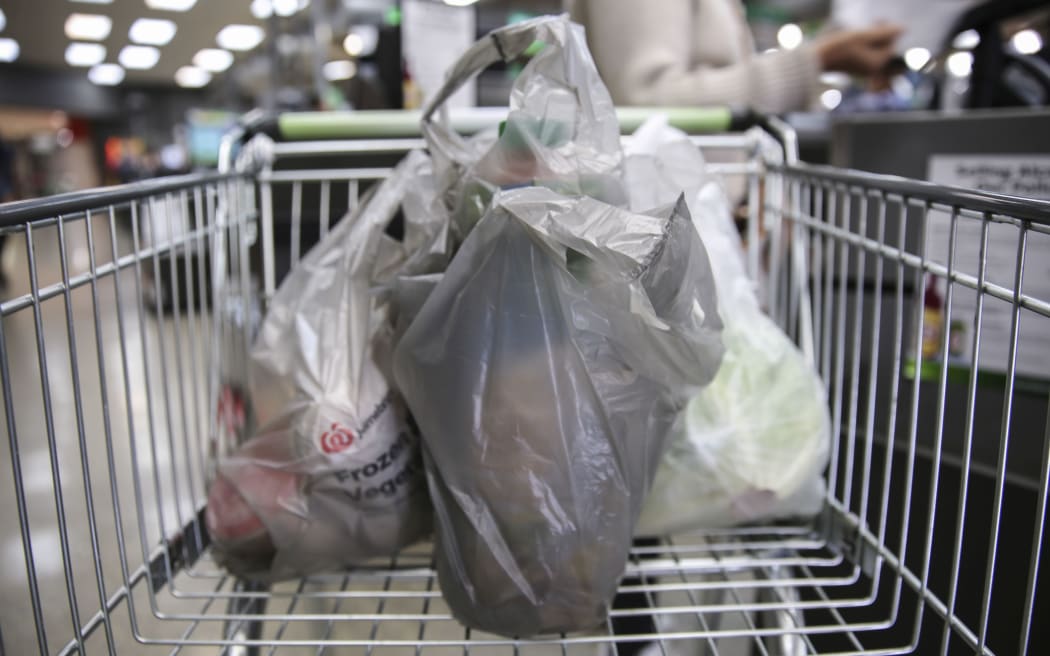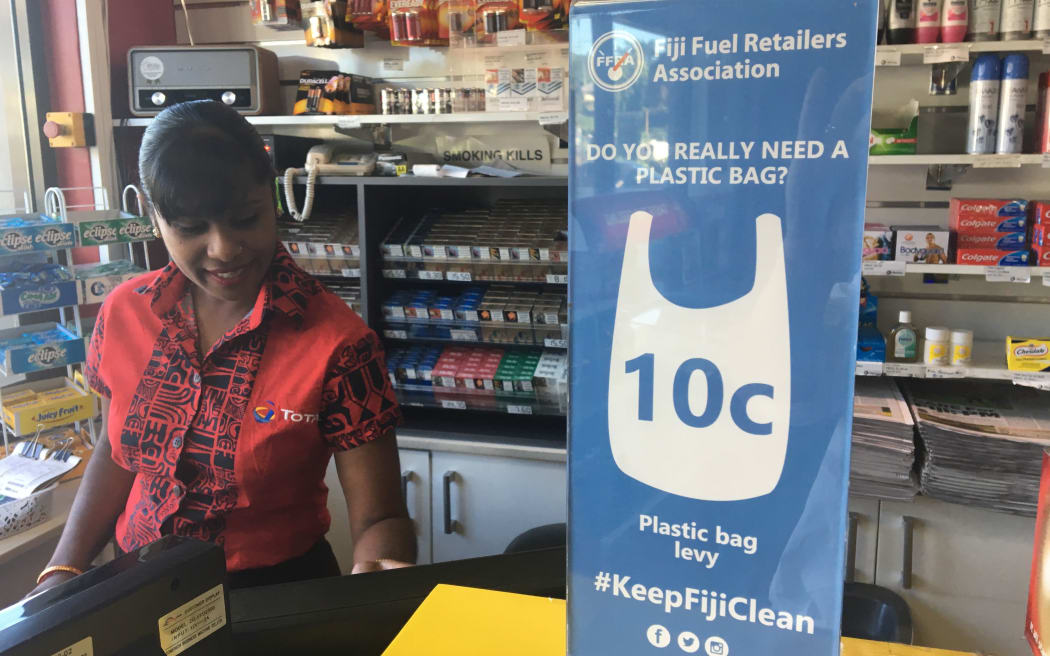Australia's biggest supermarket chains are scrambling to combat "bag rage" as frustrated shoppers vent their anger over the removal of single-use plastic bags.
Checkout staff have been abused by some customers due to the bag ban.

Photo: RNZ / Richard Tindiller
One man put his hands around a supermarket worker's throat, the West Australian newspaper reported, while grocery stores are putting on more staff to help customers get used to the change.
National supermarket chain Coles, owned by Wesfarmers, on Sunday removed single-use plastic bags from its stores, shortly after rival Woolworths banned the bags on 20 June.
Consumer complaints forced Woolworths to backflip on charging customers 15 Australian cents for a reusable plastic bag, with the retailer now offering them free until 8 July.
"They just want a little extra help from us to get through the transition," said Claire Peters, Woolworths managing director, in an emailed statement.
The removal of single-use plastics is part of a national push to reduce waste. As of 1 July, major retailers in all but two Australian states face a fine if they supply single-use plastic bags.
After seeing the backlash at its rival, Coles had planned to open every checkout lane on Sunday to reduce queue lengths as staff explained the changes to customers.
The union that represents Australian shop assistants has launched a public awareness campaign on the issue.
"While we understand that some customers may be frustrated by this change, there is absolutely no excuse for abusive or violent behaviour towards retail staff," said Gerard Dwyer, national secretary of the Shop, Distributive and Allied Employees' Association, in a statement on the union website.
The union conducted a survey earlier this week and of 132 members who responded, 57 said they suffered abuse due to the plastic bag ban.
What's the rest of the world doing?

A sign at a petrol station in Fiji discouraging plastic bag use. The country placed a levy on the bags at service station convenience stores in 2017. Photo: RNZ/Sally Round
More than 8 million tonnes of plastic ends up in the world's oceans each year, according to United Nations Environment Programme figures.
The UN wants to eliminate single-use plastic by 2022 and says more than 60 countries have so far taken steps to ban or reduce plastic consumption.
Last December, 193 countries committed to a UN plan to stop plastic waste entering the oceans. But the commitment is not legally binding and doesn't have a timetable, and different countries have adopted different schemes.
Around 40 have banned single-use plastic bags, with charges or outright prohibitions in place in China, Bangladesh and about 15 African countries.
Other nations, including the UK, are moving to ban plastic straws and cotton buds.
In New Zealand, Martinborough went plastic bag free yesterday.
Countdown started withdrawing single-use plastic bags from May, beginning with 10 of its stores.
New World has committed to becoming plastic bag free by the end of the year but it is staggering its approach through 10-cent voluntary donations for plastic bags or a 5-cent discount for customers who bring their own. Pak'nSave charges for plastic bags and offers cardboard boxes as an alternative.
Forest and Bird has highlighted research suggesting plastic in oceans harms seabirds around New Zealand disproportionately due to the abundance of birdlife in the Tasman Sea.
Samoa plans to ban single-use plastic bags and straws, with an eventual goal of including plastic and styrofoam containers and cups.
- Reuters / BBC / RNZ





